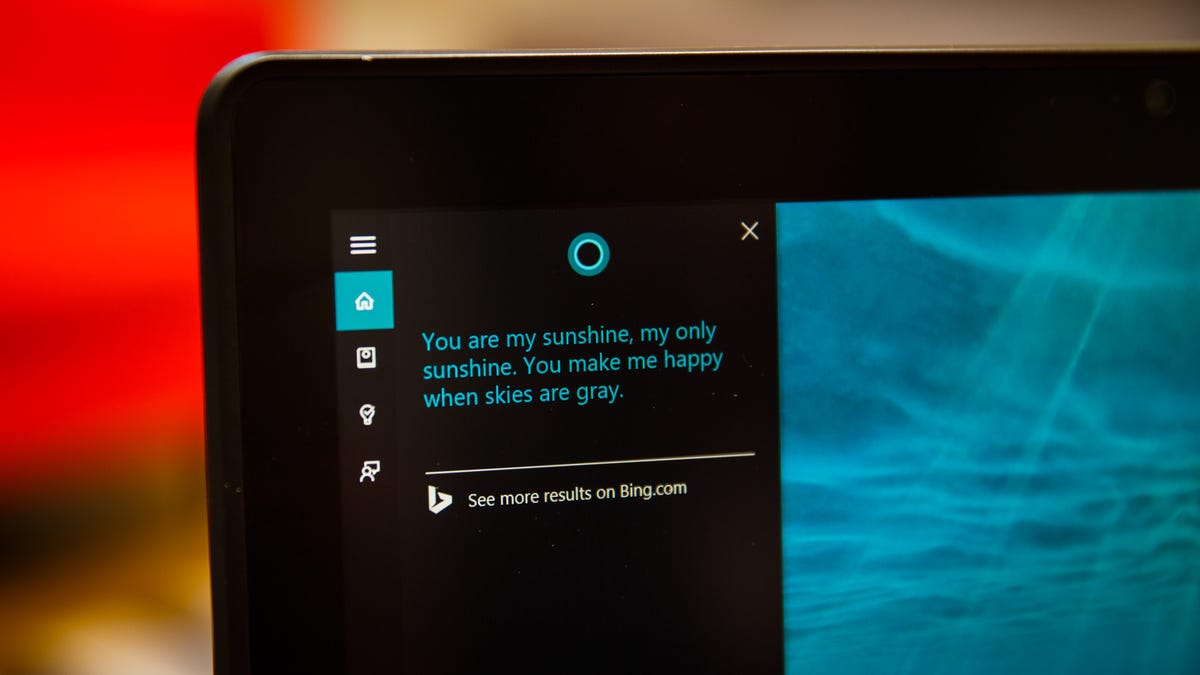Cortana reborn: Microsoft's digital assistant becomes less about Alexa, more a productivity app
Cortana isn't gone yet, but Microsoft is changing course.

Here lies Cortana -- or at least, who she used to be: An up-and-comer digital assistant whose potential was never fully realized. Last week, Microsoft said that in its upcoming Windows 10 release, it would remove some consumer-facing Cortana features like controlling music and smart home management, and shift it to more of a "personal productivity assistant" that helps you manage your calendar and tasks. Cortana's afterlife as a helpful Microsoft-focused app may be the better fit for the assistant: Without having to measure up to mightier competitors Amazon Alexa , Google Assistant and Apple Siri , it could finally shine as a pure Microsoft productivity tool.
The move is not a surprise: In 2019, Microsoft CEO Satya Nadella said that the company would scale back its ambitions for Cortana, and optimize the assistant as a helper for Office 365 instead of a competitor for Alexa or Siri. In the past year, Microsoft removed Cortana from Xbox One, Skype and Windows 10 Search.
Read more: How to download Windows 10 for free, now that Windows 7 is dead
"We see a great opportunity to build an assistant that truly helps you get things done -- one that can learn and predict what you care about and need throughout your day," a Microsoft spokesperson told CNET. "There is a need for an assistant that can go beyond answering questions or setting alarms, but one that can also help you manage all the tedious tasks in your day, like your calendar and email, stay on top of your to-dos and so much more. Our ultimate goal for Cortana is to create an assistant that can help you get back time through your day so you can focus on the things that matter most to you."
Support for Cortana in older versions of Windows (like Windows 7) is ending, and Cortana services in Microsoft Launcher on Android will get turned off as well, according to a blog post from Andrew Shuman, corporate vice president of Cortana.
Cortana's update in the upcoming version of Windows 10 (due out in the spring) will further emphasize productivity and helping you find information you need across Microsoft 365, the post said. It will include a chat-based UI that you can access via keyboard or voice command. In the US, Cortana will be further integrated into your calendar and daily tasks, allowing you to speak or type requests to find people or files, or create emails, check your calendar, set a reminder or add to your lists in Microsoft To Do.
These changes also include tighter security: To use Cortana, you need to be securely logged in with your work or school account, or to your Microsoft account.
The assistant can still do some basic assistant-y tasks, like search for answers to questions via Bing, set alarms, open apps and adjust settings.
Part of the initial problem with Cortana was that you could only access the assistant on Windows 10 machines -- there was no Echo or Google Home-type device ecosystem outside of your computer. There was a Cortana app for Android and iOS , but Microsoft began shuttering that last year as well. In 2017, Microsoft and Amazon partnered to bring Cortana and Alexa to each other's devices, so Alexa users could call on Cortana to send emails or manage calendars, while Cortana users could use Alexa skills to control smart home devices. That partnership will remain the same with Cortana's update, the Microsoft spokesperson said.
Read more: 5 Windows 10 features that beat what you had on Windows 7

